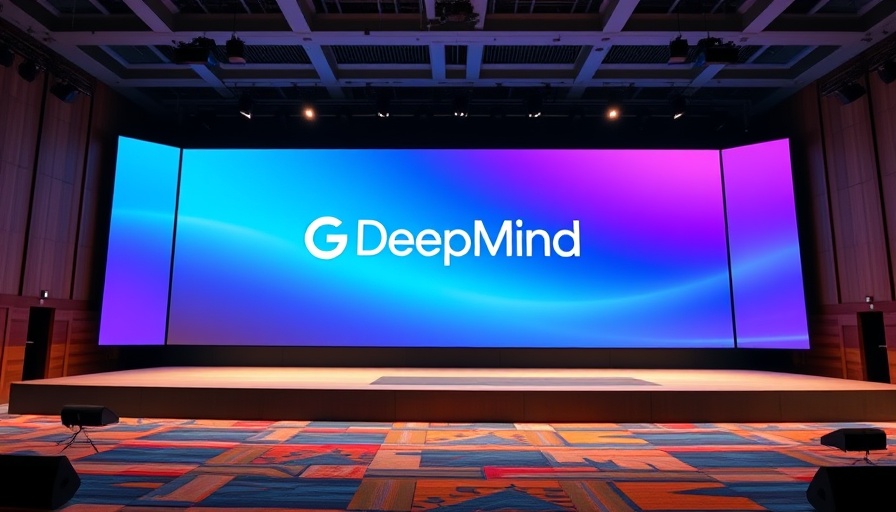
7AI Makes Waves in Cybersecurity at Black Hat 2025
At Black Hat 2025, 7AI unveiled groundbreaking innovations that are setting new standards in the field of cybersecurity. Revolutionizing the way organizations handle security operations, 7AI has positioned itself as a leader in agentic security. With their latest AI-driven technologies, the company is paving the way toward fully autonomous security measures, demonstrating a commitment to improved safety in a digital landscape fraught with risks.
Redefining Security Operations with AI-Powered Innovations
7AI's advancements come just months after the company's launch of their agentic security platform. Within a remarkably short time, they have facilitated considerable efficiencies for enterprises. With over 568,000 customer alerts processed and 224,000 analyst hours saved, the impact has been transformational. Lior Div, the CEO, emphasizes that security leaders now recognize the urgency to adopt AI technology to alleviate their teams’ workloads and enhance operational productivity by over $100 million in 2025.
Innovative Features Usher in a New Era of Autonomous Cybersecurity
This year, 7AI has introduced three pivotal features that distinguish them from their competitors. The first, Dynamic Reasoning, enables AI agents to autonomously investigate novel alerts, a remarkable leap forward from traditional systems that rely on predefined protocols. This innovation empowers organizations to respond efficiently to unknown threats, accelerating their response times significantly.
Another noteworthy feature, Enterprise Insights, utilizes a company's specific ‘tribal knowledge’ to filter false positives during threat detection. By leveraging contextual insights—recognizing acceptable VPN logins, for instance—this feature minimizes unnecessary alarms for security teams, allowing them to focus on genuine threats.
Finally, the Autonomous Remediation capability enables AI agents to take decisive actions, such as isolating compromised hosts, without manual intervention. This end-to-end automation is essential in a world where every second counts, ultimately improving the speed and efficiency of responses to security incidents.
Strategic Partnership: 7AI Joins Forces with DXC Technology
In a significant development, 7AI also announced its collaboration with DXC Technology, launching the DXC Agentic Security Operations Center. This strategic alliance aims to enhance overall cybersecurity resilience, leveraging 7AI's advanced technologies within DXC's established infrastructure. For organizations looking to fortify their security posture, this partnership presents a robust solution.
Future of Autonomous Cybersecurity: Trends and Insights
The surge in popularity and acceptance of AI in cybersecurity reflects broader trends in tech adoption. As enterprises become increasingly aware of the potential of machine learning and NLP, including applications in virtual assistants and chat bots, we can anticipate a future driven by intelligent security frameworks that actively adapt and respond to the evolving threat landscape.
Many experts predict that as autonomous systems gain traction, we will see a shift in roles within cybersecurity teams. Analysts may transition into more strategic functions, focusing on interpreting AI-generated insights and managing complex security operations. With a focus on resilience and proactive measures, the empowering of human analysts becomes crucial in complementing machine-driven interventions.
Counterpoint: Challenges and Concerns on the Horizon
As we embrace this new age of AI in cybersecurity, it’s essential to also consider potential challenges. One significant concern revolves around data privacy. As AI systems gather and process vast amounts of data, ensuring that personal and sensitive information remains protected is imperative. Furthermore, reliance on automated systems also raises questions regarding accountability—especially in scenarios where mistakes could have dire consequences.
Industry analysts encourage organizations to maintain a balanced view. While AI can significantly enhance security operations, it's crucial to integrate human oversight to mitigate risks associated with automation.
Conclusion: The Path Forward for Cybersecurity
The innovations showcased by 7AI at Black Hat 2025 illustrate a promising future where autonomous operations redefine the cybersecurity landscape. As AI technologies like gesture control and robotics continue to evolve, organizations have innovative tools at their disposal for combating an ever-changing threat environment. Companies must weigh the advantages of such technologies against the potential pitfalls, ensuring that they are prepared to navigate challenges while capitalizing on the opportunities these advancements afford.
 Add Row
Add Row  Add
Add 




Write A Comment